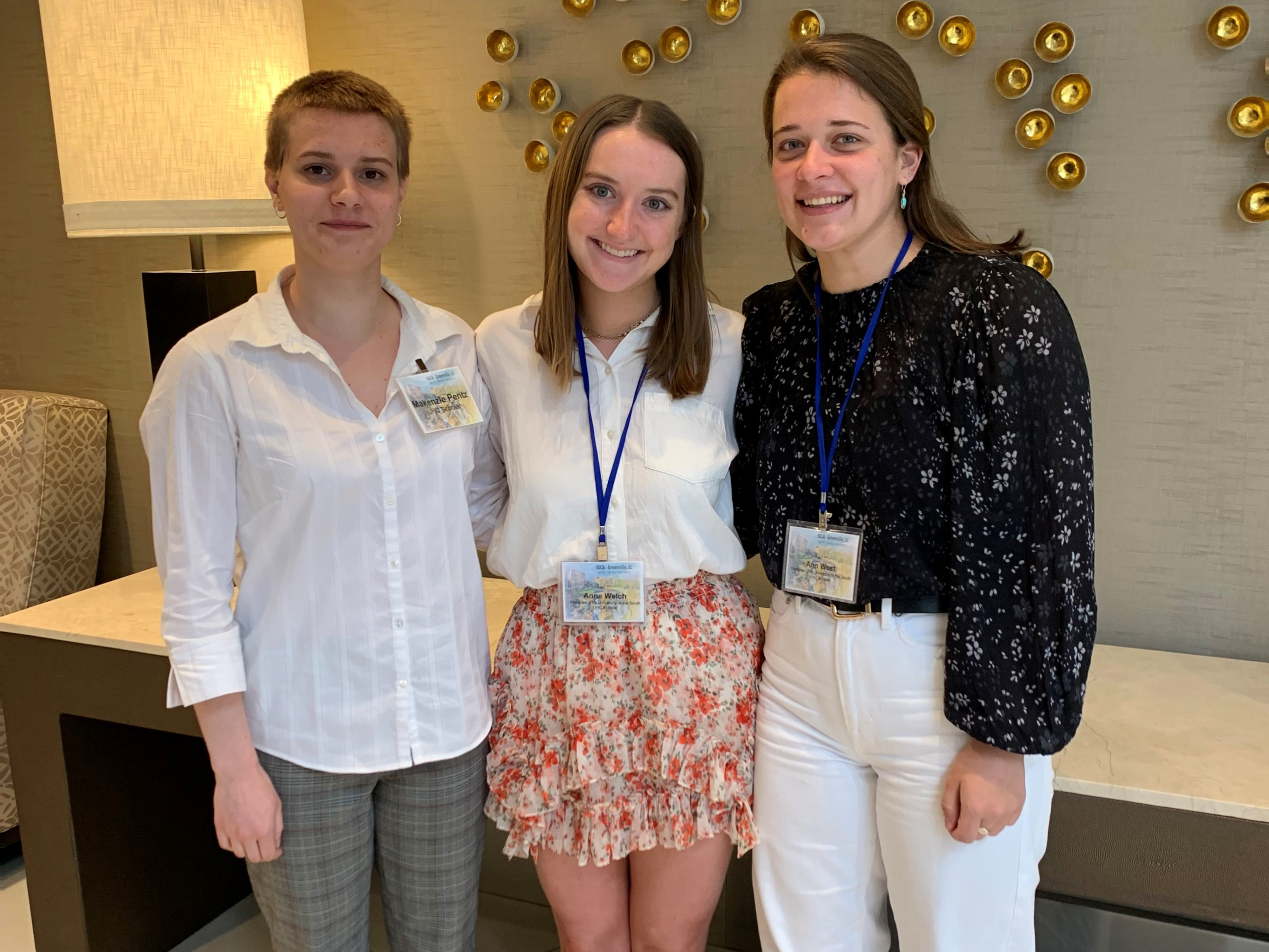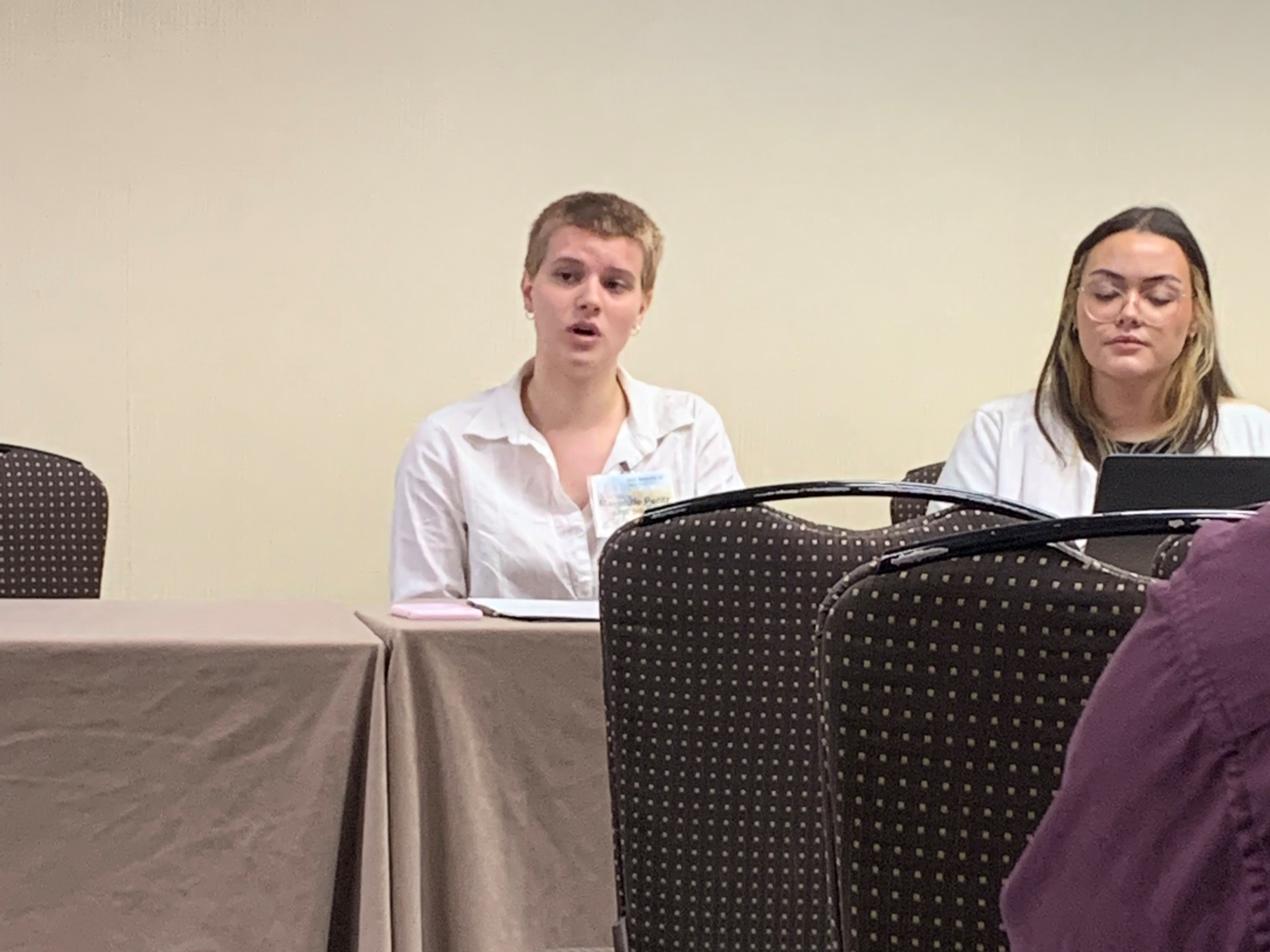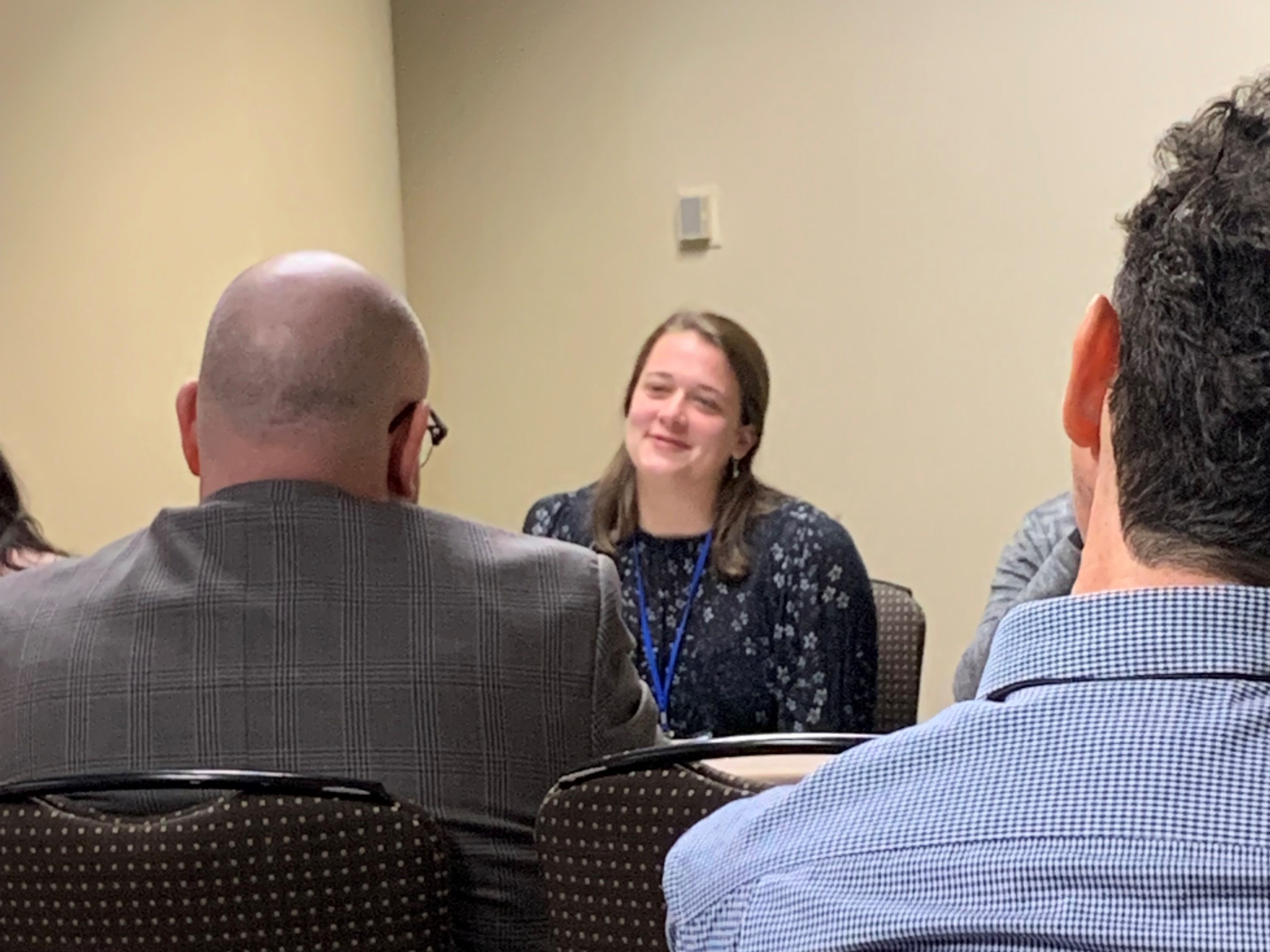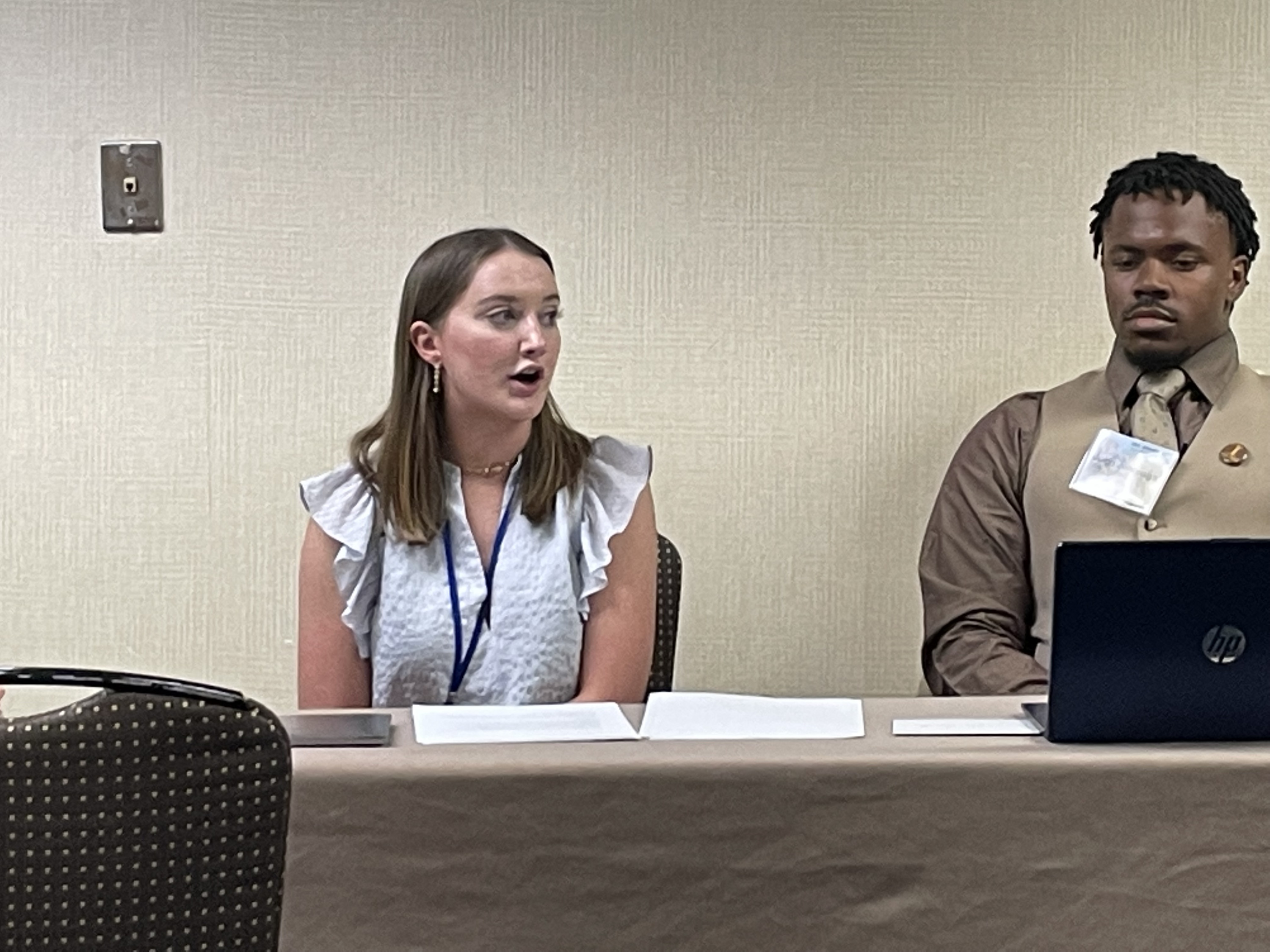The Future is Bright

With generous support from the Office of Undergraduate Research, the Rhetoric Program, and the Center for Speaking & Listening, three Sewanee students–Makenzie Pentz, Anne Mitchell Welch, and Annie West–presented papers at the Theodore Clevenger Undergraduate Honors Conference, held in conjunction with the annual meeting of the Southern States Communication Association, on April 8 and 9 in Greenville, South Carolina. The students’ research papers, written for faculty mentor Dr. Melody Lehn’s (Rhetoric and Women’s and Gender Studies) RHET 331: Voices of American Women course in Easter 2021, were competitively selected for presentation.
Ahead of the conference, the three student presenters worked with Profs. Lehn and Sean O’Rourke (Rhetoric and American Studies), Research Professor in Rhetoric Robert Gaines, Dean of the College Terry Papillon, and Center for Speaking & Listening tutors Anna Day and Audrey Hand to rehearse their presentations, gain experience fielding audience questions, and discuss best practices for conference speaking. Dean Papillon expressed that he enjoyed meeting the students and learning more about their innovative research projects. The conference experience culminated in a group dinner, where guest speakers from RHET 331 last spring–Profs. Wanda Little Fenimore and Camille K. Lewis–joined the student scholars and their mentors.

Sophomore Makenzie Pentz, a Classics and Women’s and Gender Studies double major from Crossville, Tennessee, presented her paper “Monica Lewinsky: From Scandal to Social Activism.” Pentz’s paper argues that Lewinsky “has developed a platform of activism against cyberbullying and has since given speeches that deserve examination for their historical significance in women’s rhetoric,” especially within the context of the #MeToo Movement. The panel’s faculty chair, Prof. Melissa Plew of Georgia Southern University, closed the session by saying that Makenzie and her fellow panelists “show us all that the future is bright” for undergraduate scholars in rhetoric.

Annie West, a sophomore from Norfolk, Virginia pursuing a double major in Anthropology and Environmental Arts and Humanities, recovers and analyzes a little-known commencement address by feminist Gloria Steinem at Salem State College in 1993. West’s study examines how Steinem’s address “Scholars, Witches, and Other Freedom Fighters” “looks at history through the eyes of the oppressed” and “turns scholars into revolutionaries.” Prof. Shana Bridges of Georgia Southern University, the panel’s faculty respondent, praised the “fantastic papers and presentations” and highlighted Annie’s “passion for the subject” and “energetic writing style.”

Anne Mitchell Welch, a senior Politics major and Rhetoric and Spanish double minor from Birmingham, Alabama, presented her paper “Nonviolent Direct Action, Lighting the Path for Allyship: A Rhetorical Analysis of Anne Braden.” Welch’s paper takes a timely look at the rhetoric of Civil Rights leader Anne Braden and challenges renderings of the Civil Rights Movement that exclude or minimize Braden’s rhetorical contributions. In Braden, Welch contends, contemporary white allies might find a resonating voice for unity. The panel’s faculty respondent, Prof. Victoria Gallagher from North Carolina State University, expressed that Anne Mitchell had “a great choice of artifact” on “a figure who has not received enough attention from rhetorical critics, especially in public address.”
Profs. Lehn and O’Rourke accompanied the students to Greenville. O’Rourke presented “Constructing the Culture of Segregation: The Rhetoric of Superiority and Separation” as part of a Vice President’s Spotlight Panel. O’Rourke also presented “Slaveholding Examined in the Light of the Holy Bible: A Dodransbicentennial Look” on the panel “Confronting South Carolina's Apologia and Abolition: Reckoning at 200 and 175.” Lehn presented her paper “‘Mine Eyes Have Seen the Glory’: Anita Bryant’s Anti-Gay Campaign and the Rhetoric of Reverse Discrimination” on the panel “Radical Women Rhetors of the South: Exploring Discourses of Race, Religion, and Regionalism.” Together, O’Rourke and Lehn presented “Meta-Histories and Pedagogy: Engaging Undergraduate Scholars in Rhetorical History” about their forthcoming co-authored chapter in the volume Reframing Rhetorical History: Cases, Theories, and Methodologies.
Learn more about undergraduate research in rhetoric at Sewanee here.

